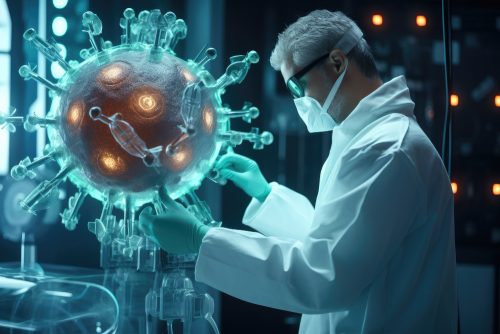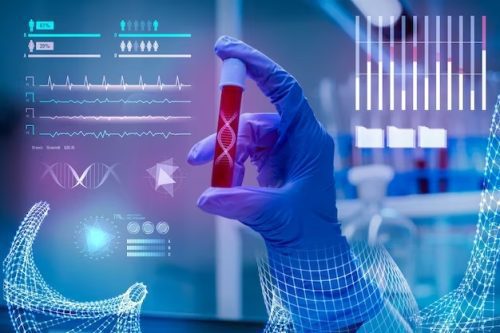Subscribe to Newsletter
Subscribe to Newsletter
Subscribe to Newsletter
Subscribe to Newsletter
Subscribe to Newsletter
Subscribe to Newsletter
Subscribe to Newsletter
Subscribe to Newsletter
Subscribe to Newsletter
Subscribe to Newsletter
Subscribe to Newsletter
Subscribe to Newsletter
Subscribe to Newsletter
Subscribe to Newsletter
Subscribe to Newsletter
Subscribe to Newsletter
Subscribe to Newsletter
Subscribe to Newsletter
Subscribe to Newsletter
Subscribe to Newsletter
Subscribe to Newsletter
Subscribe to Newsletter
Subscribe to Newsletter
Subscribe to Newsletter
Subscribe to Newsletter
Subscribe to Newsletter
Subscribe to Newsletter
Subscribe to Newsletter
Subscribe to Newsletter
Subscribe to Newsletter
Subscribe to Newsletter
Subscribe to Newsletter
Subscribe to Newsletter
Subscribe to Newsletter
Subscribe to Newsletter
Subscribe to Newsletter
Subscribe to Newsletter
Subscribe to Newsletter
Subscribe to Newsletter
Subscribe to Newsletter
Subscribe to Newsletter
Subscribe to Newsletter
Subscribe to Newsletter
Subscribe to Newsletter
Subscribe to Newsletter
Subscribe to Newsletter
Subscribe to Newsletter
Subscribe to Newsletter
Subscribe to Newsletter
Subscribe to Newsletter
Subscribe to Newsletter
Subscribe to Newsletter
Subscribe to Newsletter
Subscribe to Newsletter
Subscribe to Newsletter
Subscribe to Newsletter
Subscribe to Newsletter
Subscribe to Newsletter
Subscribe to Newsletter
Subscribe to Newsletter
Subscribe to Newsletter
Subscribe to Newsletter
Subscribe to Newsletter
Subscribe to Newsletter
Subscribe to Newsletter
Subscribe to Newsletter
Subscribe to Newsletter
Subscribe to Newsletter
Subscribe to Newsletter
Subscribe to Newsletter
Subscribe to Newsletter
Subscribe to Newsletter
Subscribe to Newsletter
Subscribe to Newsletter
Subscribe to Newsletter
Subscribe to Newsletter
Subscribe to Newsletter
Subscribe to Newsletter
Subscribe to Newsletter
Subscribe to Newsletter
Subscribe to Newsletter
Subscribe to Newsletter
Subscribe to Newsletter
Subscribe to Newsletter
Subscribe to Newsletter
Subscribe to Newsletter
Subscribe to Newsletter
Subscribe to Newsletter
Subscribe to Newsletter
Subscribe to Newsletter
Subscribe to Newsletter
Subscribe to Newsletter
Subscribe to Newsletter
Subscribe to Newsletter
Subscribe to Newsletter
Subscribe to Newsletter
Subscribe to Newsletter
Subscribe to Newsletter
Subscribe to Newsletter
Subscribe to Newsletter
Subscribe to Newsletter
Subscribe to Newsletter
Subscribe to Newsletter
Subscribe to Newsletter
Subscribe to Newsletter
Subscribe to Newsletter
Subscribe to Newsletter
Subscribe to Newsletter
Subscribe to Newsletter
Subscribe to Newsletter
Subscribe to Newsletter
Subscribe to Newsletter
Subscribe to Newsletter
Subscribe to Newsletter
Subscribe to Newsletter
Subscribe to Newsletter
Subscribe to Newsletter
Subscribe to Newsletter
Subscribe to Newsletter
Subscribe to Newsletter
Subscribe to Newsletter
Subscribe to Newsletter
Subscribe to Newsletter
Subscribe to Newsletter
Subscribe to Newsletter
Subscribe to Newsletter
Subscribe to Newsletter
Subscribe to Newsletter
Subscribe to Newsletter
Subscribe to Newsletter
Subscribe to Newsletter
Subscribe to Newsletter
Subscribe to Newsletter
Subscribe to Newsletter
Subscribe to Newsletter
Subscribe to Newsletter
Subscribe to Newsletter
Subscribe to Newsletter
Subscribe to Newsletter
Subscribe to Newsletter
Subscribe to Newsletter
Subscribe to Newsletter
Subscribe to Newsletter
Subscribe to Newsletter
Subscribe to Newsletter
Subscribe to Newsletter
Subscribe to Newsletter
Subscribe to Newsletter
Subscribe to Newsletter
Subscribe to Newsletter
Subscribe to Newsletter
Subscribe to Newsletter
Subscribe to Newsletter
Subscribe to Newsletter
Subscribe to Newsletter
Subscribe to Newsletter
Subscribe to Newsletter
Subscribe to Newsletter
Subscribe to Newsletter
Subscribe to Newsletter
Subscribe to Newsletter
Subscribe to Newsletter
Subscribe to Newsletter
Subscribe to Newsletter
Subscribe to Newsletter
Subscribe to Newsletter
Subscribe to Newsletter
Subscribe to Newsletter
Subscribe to Newsletter
Subscribe to Newsletter
Subscribe to Newsletter
Subscribe to Newsletter
Subscribe to Newsletter
Subscribe to Newsletter
Subscribe to Newsletter
Subscribe to Newsletter
Subscribe to Newsletter
Subscribe to Newsletter
Subscribe to Newsletter
Subscribe to Newsletter
Subscribe to Newsletter
Subscribe to Newsletter
Subscribe to Newsletter
Subscribe to Newsletter
Subscribe to Newsletter
Subscribe to Newsletter
Subscribe to Newsletter
Subscribe to Newsletter
Subscribe to Newsletter
Subscribe to Newsletter
Subscribe to Newsletter
Subscribe to Newsletter
Subscribe to Newsletter
Subscribe to Newsletter
Subscribe to Newsletter
Subscribe to Newsletter
Subscribe to Newsletter
Subscribe to Newsletter
Subscribe to Newsletter
Subscribe to Newsletter
Subscribe to Newsletter
Subscribe to Newsletter
Subscribe to Newsletter
Subscribe to Newsletter
Subscribe to Newsletter
Subscribe to Newsletter
Subscribe to Newsletter
Subscribe to Newsletter
Subscribe to Newsletter
Subscribe to Newsletter
Subscribe to Newsletter
Subscribe to Newsletter
Subscribe to Newsletter
Subscribe to Newsletter
Subscribe to Newsletter
Subscribe to Newsletter
Subscribe to Newsletter
Subscribe to Newsletter
Subscribe to Newsletter
Subscribe to Newsletter
Subscribe to Newsletter
Subscribe to Newsletter
Subscribe to Newsletter
Subscribe to Newsletter
Subscribe to Newsletter
Subscribe to Newsletter
Subscribe to Newsletter
Subscribe to Newsletter
Subscribe to Newsletter
Subscribe to Newsletter
Subscribe to Newsletter
Subscribe to Newsletter
Subscribe to Newsletter
Subscribe to Newsletter
Subscribe to Newsletter
Subscribe to Newsletter
Subscribe to Newsletter
Subscribe to Newsletter
Subscribe to Newsletter
Subscribe to Newsletter
Subscribe to Newsletter
Subscribe to Newsletter
Subscribe to Newsletter
Subscribe to Newsletter
Subscribe to Newsletter
Subscribe to Newsletter
Subscribe to Newsletter
Subscribe to Newsletter
Subscribe to Newsletter
Subscribe to Newsletter
Subscribe to Newsletter
Subscribe to Newsletter
Subscribe to Newsletter
Subscribe to Newsletter
Subscribe to Newsletter
Subscribe to Newsletter
Subscribe to Newsletter
Subscribe to Newsletter
Subscribe to Newsletter
Subscribe to Newsletter
Subscribe to Newsletter
Subscribe to Newsletter
Subscribe to Newsletter
Subscribe to Newsletter
Subscribe to Newsletter
Subscribe to Newsletter
Subscribe to Newsletter
Subscribe to Newsletter
Insilico Macromolecular Modeling & Docking
Unlock the Power of Molecules: Model, Dock, and Discover
Online/ e-LMS
Self Paced
Moderate
1 Month
About
The “Insilico Macromolecular Modeling & Docking” program offers a detailed exploration into the computational techniques used in modeling biological macromolecules and their interactions with ligands. Through immersive lectures and hands-on training in software like AutoDock, Rosetta, and MOE, participants will learn to visualize, model, and manipulate molecular structures to predict how they interact with other molecules.
Aim
This program is designed to equip participants with the skills to perform advanced macromolecular modeling and docking techniques, crucial for drug design and molecular biology. Students will learn to simulate molecular interactions, predict binding affinities, and utilize computational tools to aid in the discovery and development of new pharmaceuticals.
Program Objectives
- Master the fundamentals of macromolecular structures and interactions.
- Develop skills in using state-of-the-art software for molecular modeling and docking.
- Understand the applications of molecular docking in drug discovery and development.
- Analyze and interpret data from computational modeling experiments.
- Prepare for advanced roles in research and development within biotechnology and pharmaceutical sectors.
Program Structure
Introduction to Insilico Macromolecular Modeling & Docking:
- Overview of insilico methods for studying macromolecules and their interactions.
- Introduction to molecular modeling and docking techniques and their applications.
Molecular Visualization and Analysis:
- Introduction to software tools for visualizing macromolecular structures.
- Hands-on exercises on visualizing and analyzing protein and nucleic acid structures.
Homology Modeling:
- Understanding the concept of homology modeling.
- Selection of template structures and building homology models using bioinformatics tools.
Introduction to Docking:
- Basics of molecular docking and its role in drug discovery.
- Exploring different docking algorithms and scoring functions.
Ligand-Based Drug Design:
- Principles of ligand-based drug design and virtual screening.
- Hands-on exercises on using molecular descriptors and similarity-based approaches.
Protein-Ligand Docking:
- Introduction to protein-ligand docking techniques.
- Hands-on exercises on performing protein-ligand docking using software tools.
Analysis of Docking Results:
- Evaluation and interpretation of docking results.
- Visualizing and analyzing protein-ligand interactions.
Structure-Based Drug Design:
- Concepts and techniques of structure-based drug design.
- Applying docking data to optimize protein-ligand interactions.
Model Validation and Evaluation:
- Importance of model validation and evaluation in macromolecular modeling.
- Techniques for assessing the quality and reliability of models.
Advanced Topics in Docking:
- Exploring advanced concepts in molecular docking, such as induced fit and scoring function optimization.
- Hands-on exercises on advanced docking techniques.
Case Studies and Applications:
- Presenting real-world case studies showcasing the applications of insilico macromolecular modeling and docking.
- Discussion on the impact of computational methods in drug discovery and molecular design.
Practical Applications and Future Directions:
- Exploring emerging trends and future directions in insilico macromolecular modeling and docking.
- Discussion on the practical applications and potential challenges in the field.
Participant’s Eligibility
- Undergraduate or graduate degree in Biochemistry, Molecular Biology, Biophysics, or related fields.
- Professionals working in pharmaceuticals, biotechnology, or academic research.
- Individuals interested in computational biology, drug design, and molecular diagnostics.
Program Outcomes
- Proficiency in molecular modeling software
- Understanding of molecular interaction principles
- Capability to design and execute docking simulations
- Insight into the drug design process
- Skills in data analysis and interpretation for biological systems
Fee Structure
Standard Fee: INR 4,998 USD 110
Discounted Fee: INR 2499 USD 55
We are excited to announce that we now accept payments in over 20 global currencies, in addition to USD. Check out our list to see if your preferred currency is supported. Enjoy the convenience and flexibility of paying in your local currency!
List of CurrenciesBatches
Certificate
Program Assessment
Certification to this program will be based on the evaluation of following assignment (s)/ examinations:
| Exam | Weightage |
|---|---|
| Mid Term Assignments | 50 % |
| Project Report Submission (Includes Mandatory Paper Publication) | 50 % |
To study the printed/online course material, submit and clear, the mid term assignments, project work/research study (in completion of project work/research study, a final report must be submitted) and the online examination, you are allotted a 1-month period. You will be awarded a certificate, only after successful completion/ and clearance of all the aforesaid assignment(s) and examinations.
Program Deliverables
- Access to e-LMS
- Real Time Project for Dissertation
- Project Guidance
- Paper Publication Opportunity
- Self Assessment
- Final Examination
- e-Certification
- e-Marksheet
Future Career Prospects
- Computational Biologist
- Structural Biologist
- Pharmaceutical Research Scientist
- Biotechnological Research Scientist
- Academic Researcher in Molecular Biology
- Drug Discovery Specialist
Current Participants* Analytics
Country
Profession
Affiliation
Note: The information shown in the above-mentioned analytics is live and may include information that is not completely correct like spelling mistakes, grammatical mistakes , factual errors or even mis representation as this is what participants have entered, the information is currently not edited and or filtered , but at later stages they will be filtered to provide true data representation.
Enter the Hall of Fame!
Take your research to the next level!
Achieve excellence and solidify your reputation among the elite!
Related Courses

Artificial Intelligence for …

AI Applications in Pharmacy: …

SQL & Power BI Program: …

Data Visualization using …
Recent Feedbacks In Other Workshops
The course was more theoretical than practical.
nothing

